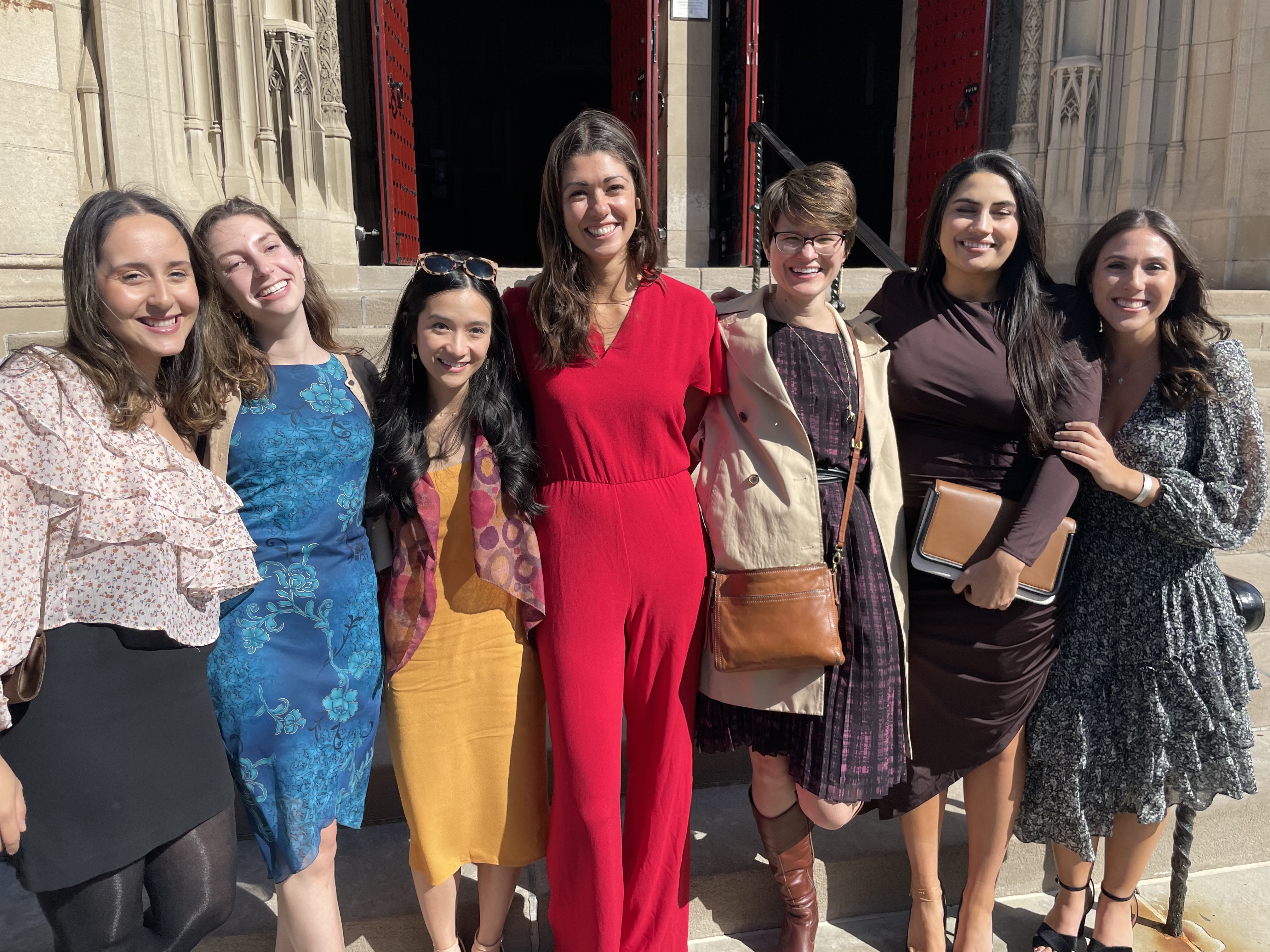
The information below from the 2024-2025 cycle is included for prospective applicants in the future (not the current cycle):
Thank you for your interest in applying to be a graduate student in the Families, Emotions, Neuroscience and Development (FEND) Lab. I receive too many emails from potential applicants to respond to each one personally, therefore I put together this material to help you learn about the program and decide if you want to apply. If you have a specific question after reviewing this material, feel free to email me. It is not necessary or encouraged to send an email to inform me that you will be applying--this does not provide any advantages in the application process.
I generally consider applications through the University of Pittsburgh’s Clinical/Developmental Joint Ph.D. Program. Details about the program, application process, funding and resources can be found on the Department of Psychology website.
Admission to our program and my lab is highly competitive, so please make sure your interests are a good match before applying. I am looking to train students who are primarily interested in research careers, although students in our program do also receive high-quality clinical training. The lab studies the development of affective disorders in adolescents, such as anxiety, depression, and suicidality. Our research focuses on the intersection of neurobiological risk factors and social experiences, especially experiences with peers and social media as well as parents, and how these influence day-to-day emotional experience measured using ecological momentary assessment.
We are currently funded by the National Institute of Mental Health to study day-to-day fluctuations in emotional health among adolescent girls using ecological momentary assessment and passive sensing of social media use in a project called: “Neural sensitivity to social evaluation and daily online and in-person social experience with peers: Predicting fluctuations in suicidality, self-harm, and depressive symptoms in adolescent girls” (R01 MH124866). This study, co-directed by Dr. Cecile Ladouceur in the Psychiatry Department, examines how socially threatening and rewarding peer interactions—experienced online or in-person—contribute to real-time fluctuations in suicidality, self-harm, and depressive symptoms, independently and in interaction with neural vulnerabilities. We also have data available to analyze from a recently completed study (R01 MH103241: “Influence of Social Threat on Reward Function in At-Risk Adolescent Girls”), which was a prospective high-risk longitudinal neuroimaging/EMA study testing the role of altered responsiveness to social rewards in early adolescence as a mechanism that could contribute shared risk for social anxiety and depression among girls during later adolescence. Additionally, in a collaboration with Dr. Erika Forbes in Psychiatry (“Social-Affective Vulnerability to Suicidality among LGBTQ Young Adults: Proximal and Distal Factors”), we are using ecological momentary assessment, neuroimaging, and machine learning to examine how real-time social interactions (online and offline), and associated neural responses, predict increases in suicidal thoughts and behaviors among LGBTQ late adolescents and young adults.
With these projects in mind, I am open to taking students who are interested in adolescent development and anxiety, depression, and/or suicidality. In addition, students should have an interest in one or more of the topics/methods below. Please make sure to specify your interests in your application:
- social media use
- emotional reactivity and regulation
- peer acceptance and rejection
- parent-adolescent relationships
- affective neuroscience
- neuroimaging
- ecological momentary assessment
- eyetracking
I am also open to co-mentoring arrangements, with current students co-mentored by Dr. Sophia Choukas-Bradley with a focus on social media (but note Dr. Choukas-Bradley will not be able to co-mentor a student this year) and Dr. Cecile Ladouceur, with a focus on neuroimaging/affective neuroscience. Options may also be available for co-mentorship with Dr. Jamie Hanson. You can reach out to me discuss other potential co-mentoring arrangements.
